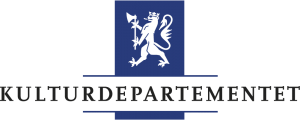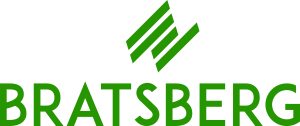Garden of Epicurus, by Geddy Aniksdal

Talk given at The Articulate Practioner, University
of Aberystwyth/The Magdalena Project – 22nd of
July 2005
My name is Geddy Aniksdal , I come from the west of Norway, I am soon
50 years old, and I have spent half of my life working in the theatre group
Grenland Friteater.
The group will be celebrating its 30 years anniversary next year.
As with the Odin Teatret it is located in a seemingly unlikely place for
experimental theatre, we live and work in a small industrial town 7 kilometers
from the more internationally known birthplace of Henrik Ibsen, the playwright.
In the beginning cultural authorities in our industrial town, Porsgrunn
responded to the funding of our group with the words: Let Skien, the near by
town take culture, after all, we have industry.
Much water has passed under the bridge since then, and many jobs in industry
have gone, the whole picture has changed radically.
From us being a group of suspicious, dopesmoking youngsters making a kind
of theatre that was never seen or heard of in our little place before. A physical
expressive, groupimpro based non literary theatreform that took us for tours
all over Europe, but that attracted only specially interested people, the
congregation as we humorously called them.
To now, almost 30 years later, where we are asked by the cultural authorities
of our town to create projects to celebrate the towns 200 years, to us being an
important part of ” culture as industry”, the importance of art in a society where
the traditional jobs are in decline.
How come all that was seen as underground, fringe, experimental, off, weird,
elitistic, esoteric now suddenly is what “they” ask for? How come we are in
demand?
I think that the practice learned in the first ten years of our group, our
formative years, gave us an extraordinary competence, that we did not fully
realize. Since it was important,to a certain extent to be outside of society,
create new rules, new practice, we had our own ethic, our own morality, that was
then different.
I learned to become a autonomous actor. I learned to take responsibility for
all the work necessary in a group; to develop training,make performance,
make costumes, make props,get a theatrespace ,redecorate a theatrespace,
maintain a theatrebuilding, make tours, make workshops, seminars,
symposiums, make commitments to publish and spread
information and knowledge about theatre, make your place a place for others
to come to, for exchange work and further learning. The group was our life, our
existence, and – still is.
None of us has had any formal schooling we were all against both military
service and official theatre schools.
We are all autodidact. At that time we thought it was important to be as far
from Ibsen and the institutional theatre as possible.We also made the
commitment to stay in the group and not take outside jobs, no matter how
poor we became.
And still to this day, where we might wonder if we are too much inside the
warmth of being acknowledged and appreciated, we quarrel about Ibsen, the
Ibsenmania…and know that we would be worth little without our own practice.
And of course, without Ibsen, there would not be any tradition to be against.
I find myself deeply rooted in the first formative years in the group, where the
training, the building of a craft, the constant work of making it all, no matter
what, the concentration of our endless ours in the working space, the us
against them, the knowledge that now matter how different we were, we would
not wanted to be accused on it not being good enough, not being well looked
after. We were rigourous in all matters. We also decided to be very petit
bourgeous with all official correspondence, also to mark that socalled “wild’,
experimental theatre did not have to mean that we could not write a correct
business letter. We also started our work in the morning at the same time as
the workers went to the factory.
Why do I dwell on this? Because that practice has made me the actor I am, the
director, pedagogue and cleaning woman I am ( I knew how to clean before I
came though)
I came to this theatre group, not because I had a deep interest in theatre, not
because I had a big talent for acting that I knew of,but in an attempt to
escape from the other world, to find a place, a garden, to where I could
belong, to in the early 80ties find something to believe in, again, to be in a
place where it mattered, and to slowly, have a profession.
And that profession comes out of a way of thinking, an attitude, a belief just
as much as the slow process, still continuing, of learning the how,
understanding the why.
When in the first years we needed to learn more, to have help from outside,
we invited more experienced people, made our own school so to speak and
gradually built our own education. As we became more mature, we reshaped
and moulded what was given to us into our patterns into our reality where we
were living and has over the year passed it on it to the people working with us.
We need to acknowledge the importance of Teatr Laboratorium in Poland, of
Friteatern in Sweden, of Institutet for Scenkonst, Sweden/ Italy,of the Odin
Teatret. For their search and practice, for them giving examples to us.And to
The Magdalena Project which has since 1986 been a constant sorce of
inspiration and our own garden where we all have planted our seedlings, new
plants from all over the world, a completely new flora.
.
Back to the early years:
At the base of our work is the actor. The action.We believe that the actor, and
her autonomous work, is more important, principally, than the text, the props,
the costumes, the lights, the set. Throw it all out!!!…To get down to scratch you
need one actor, a story to tell, and one spectator. ( I should try to remember
that myself, now , being responsible for the mega project Sense of Place).
We sought to build a work where the actors in group improvisation could
develop such skills as precision, knowledge and memory through their work,
that they could recreate, reremember their work, not as an exact copy of what
they did before, but with carrying the essence of it, even if the order, situation
and constellation changed from day to day.
I still philosophically think of it as a way of admitting that today and tomorrow
are different things, and that I myself have changed too, at least I am one
day older. The people that came to see my performance yesterday are not the
same as today. I also have the experience of yesterdays performance and so
forth. The situation is not the same, the constellation is not the same, and I
do not believe in trying to pretend that even a dark, controlled theatrespace
can or should be identical each night. This is also; I hope, reflected in my
performance work. I go out there with what I know, but if something new
happens, I will, with my work, respond to that. What did the old philosopher
say? “You cannot enter the same river twice”
Much of our actors preparations, the training, prepared us for situations. We
had tools to respond with. Our physical and vocal score were not fixed down to
the minute detail, they were precise, but we applied them differently according
to the situation. We call it to improvise, but in fact to alternate might be a
more precise word. Like a musician will be able to alternate and vary notes,
themes, sequences out of something she knows well, so did we. We called it
our personal material. A material consisting of gestures, themes, sequences,
fragments of texts, longer passages of text. Seen from the outside. And of
course with visions, associations, dreams, hopes and goals, from the inside.
For years we had the vision of the ultimate improvised performance, where
nothing was fixed, it proved unbearable for the actors, not to say devastating
for the director, a helpless witness to too much…of everything.
(this is a theme of its own that I will not develop further here, but say that
some actors grew with the responsibility, others shrank, in short it proved too
vulnerable a situation .)
Still, the principles of this work are of great importance to myself as actor. To
know and trust that I have through my craft learned and experienced the
intelligence of the body. The knowledge that is deeply rooted in my bodys
memory and sensory system. I have learned it, it can not be erased. This
learning, this craft is also applicable to other situations outside the working
space.
I try to share this knowledge, my practice to people in the workshops, with my
actors when I am the director, with the young ones at the theatre. This, and
the proposal to try to own this work, to have a work consisting of something
concrete, something to start with, something that will always be there, as long
as you yourself are there.
Although much of our work now, does not have hours of training and
preparation before entering the performance material, I insist on the
importance of it, it is from that foundation my work derives.I would not be or
do what I do now if I had not experienced this learning process.
I know what my body is doing, and I can to a certain extent also know the
impact of it. I know the different rhythms that I am using when I am walking,
jumping, leaping, running. The different tones of my voice, the colour of my
voice, the silences between the sounds, I have learnt how to be concentrated
upon what I do, and still have a an eye, an extra eye outside.
I can see with my back. I can listen with my shoulder.
Concrete practice
When I enter the workshop space and meet the participants for the first time, I
immidiately see their bodies, not like how they are dressed, or what shape, but
how they hold their bodies, how they carry themselves, how they show or hide
different parts of their bodies, how they walk, stop, how they focus or not, how
they hold their head, how they move or not their hands or arms when they are
speaking, and so forth, I notice, I observe, I gather information, it comes by
itself. From the work as an actor, but also from the directors work, where you
get to know bodylanguage in depths.
Digression
I think that also more and more we are asked to come and coach people who
gives speeches or politicians who want to win voters or people who want to sell
a message or yet another item we do not need, they come to us, so we can
help them to hide the language, the words that their bodies are telling, without
them being aware of it.
The different exercises I propose all challenges the body.Wherein also lies the
mental challenge.
Wanting to be an actor needs an extra effort, I mean otherwise what one
wanted to express could be written in the newspaper, or in a book or shouted
in a rally?
To be an actor is a craft. The craft requires presence, precision in the
communication of your content, your own way of communicating with an
audience?
Your body is the vessel, or as I prefer, the instrument.
We seldom hear of cello players not practising? But it has been this notion,
maybe, that only if you are gifted enough, you could go up there and do your
text and mesmerize people. I do not belong to that group, if it exist, we
usually concluded, again with humour, I hope, that it is mostly- hard work.
Digression( again)
What is wrong with hard work anyway? It gives an important satisfaction to
know that you have worked, that you have tried, and also to know that some
of that work will transform itself to experience, knowledge and eventually, your
craft)
( I really hope I don’t sound like a missionary here, maybe I have choosen
many wrong words? ) Stop digressing, Geddy
Hard work
starts with, for the cello player, oh god, where is this going, how to hold your
instrument, how to sit right, how to hold and move the bow, etc etc, a lot of
groundwork and essentials long before you have played one note. Then notes..
Then how, the multiple how of notes?
So with theatre, theatre practice.
The start, how to hold your body, not to be 100 kilo of dead meat,( as we call
actors not holding their bodies)
How to be able to stand
How to be able to walk
How to get to know where your limbs are, if you are controlling them or they
you.
To command your voice. To search for the multiple, endless possibilities of this
intimate, extraordinary organ that we all have.
How to find, challenge and control you balance
How to learn rhythms
How to get your ass , sorry, behind, off the ground
How to lower yourself gracefully down to the floor, I have seen hilarious
examples of sitting down on stage in performances, and no matter how
important / emotional the text might be, it is of no help if we have the 100
kilos of dead meat again. Involuntarily, even worse.
So, there are many things to learn, and to benefit from, from having control
over your own body/voice.
In a 3 to 5 days workshop, with a lot of people and little time, how to go about
it?
I always start by making people sit in a circle. In the centre of the room. So we
can all see each other. Through asking them to tell who they are, and why they
came to this particular workshop “ The actors own work” I get a variety of
information about the before mentioned bodies. And the persons belonging to
them.
Then we go directly to the practice that we keep alive and try to develop further
even today at the theatre, Kung Fu.
We started to learn Kung Fu together with Ingemar Lindh in Italy in the
eighties and have carried on ever since. Ingemar is dead. We have a new
master in Kung Fu now, his name is Tony Brown.He teaches Hungar style. His
daughter also teaches us sometimes.
Tony Brown has only one arm, the other got ripped off . It means he teaches
us in a very peculiar way, first showing right by left, then left by left, one frontal
one mirror image.
Well, we figured that if he could manage to become a carpenter after losing his
arm, we could learn” the wrong way” and so I figure the workshop participants
have an easy match with me,a two armed person.
Kung Fu requires strenght, stamina and patience, and good, keen eyes. to
follow.To observe and do it yourself.
Through Kung Fu you wake up, literally, but you also wake up your system,
your instincts, your condition, your alertness. When we worked in China, we saw
the people practising the marshall arts first thing in the morning.
.
I take the workshop participants through the preparation exercises and
introduce them to a little form that is possible to remember in a few days, so
they can continue on their own. Usually The Little Tiger or Chung I Chen or Yi
sap lou Ken
Kung Fu is a rigorous system, it consists of stances for the feet and codified
movements with the arms and hands. At our theatre used in non-
combat .There are solo forms that we exercise all together, or two persons
forms where we strike and defend.
After a Kung Fu session it is good for the continuity of the day either to move
into more fluid movements, physical exercises, the physical serie, plastique, or
vocal work.
To explain more easily the principles of the work are the same, from the most
technical exercise, to a so called warm personal score, the most accesible
practice is the physical serie, as we inherited from the Institutet. One learn the
exercises one by one, and then chain them together, and when taking the
room, the others, the rhythm, and the rhytm shifts into consideration, start to
work more autonomously, a beginning of a continuous work, where you
yourself are the driver, the motor, the responsible. The actor in fact, as
director, playwright as well, as her own dramaturg we use to say.
What do I mean when I say the principles are the same?
As I mentioned earlier 100 kilos of dead meat do not hold attention for a long
time. We seek in the theatre to hold the spectators attention, by what we are
doing. Text and movement are here “ the same” The principles that we use
from the first exercise and all the way into the performing itself is aiming at
filling our actions, our scores with life.Nerve. Energy. Concentration.Presence.
Almost all of it can be taught.
Theatre is an act of transformation, another way of telling.It is
extraordinary.No?
In normal life we are full of contradictions, because it is natural, for a woman
for instance, to hold the phone, put clothes into the washingmachine and
scratch a mosquito bite on the ankle at the same time, Imagine the body
doing these movements, with all the contradictions, twists, shapes and
stances.
The risk is, if we do not create a scenic language, we come out there, with our
words, usually, and we are 100 kilos of dead meat, because we do not have a
clue about what to do with our body! It is dead, or simply an embarrasment.
If we do not want to use our body, we can make radioplays!
In the theatre we see and hear.
A work of energy, a work of precision, coordination of limbs, awareness of
weight and balance, a work of observation, a work of information, a fight with
yourself and your seemingly first limits, a discovery of energy, extra energy,
surplus energy. Of listening.
Unfortunately there are more and more people, especially in the western world,
who have poor balance, cannot bend the knees or sink down to a low base,
jump up in the air, or have sense of where they and the others are in the
room, and often I find it necessary to make some special group exercises to
strenghten these abilities, otherwise they are harmful to themselves and the
group.
The pure joy of moving is sometimes so overwhelming that the recognition of
the possible danger they are putting themselves in is very pure, and bodies
are breakable, and I want them to take care. Therefore these” sharpen the
senses exercises” often are;
Walk the room, run the room, be in the room in different tempi with the
others, but with no collisions, and ability to stop on the spot. Into this simple
pattern it is easy to put other tasks ; how do you make your spine have a little
fall without you falling, or without bending down, how can you make sure you
know where you are, and the others,how can you move in slow motion, slow
motion with resistance, superenergy, light and airy, heavy and contained, start
to create figures of walking pattern and so on.
Through these exercises the body learn new forms and has more alternative
movements, your expressions possibilities are larger.
It requires energy and full acceptance, and also the inevitable pain that comes
with exposing your body , especially the muscles to movement not earlier
experienced. To learn exercises, to start on the road to a new craft, a possible
profession also means times when you feel utterly clumsy, disorientated, sick,
angry, you name it. And it lasts for years…still.
From learning exercises, and starting to use them in your own way, since you
are you and not me, the road is not long to solo or group improvisations where
you from a given theme start to find your own gestures, scores that requires
the same life, that the exercises do.
And little by little there is a material that is known to the actor, that the actor
can do, and that can be fixed to the extent that serves the potential
performance.
This is not an easy way to create performances, it takes a long time, and there
are many choices that you will have to take for yourself, and sometimes the
possibilities are so many that one can drown in alternatives, but:
The knowledge and experience you own yourself when you have learned this
way, makes you able to have a practice whether you are involved in a
performance or not, makes you a crafts woman. It was a good and concrete
start for me.Who might be more of a theatremaker, a doer… Who knows?
At least if you have a craft, you have a knowledge that no one can take away
from you. It also gives self respect and dignity. There are enough
compromises to be given anyway…
It is important that young people make sure that they get , search, rob and
steel, beg and shout for the knowledge, the learning that they want, and so
can go on, be autonomous in their work, have a work even if no one has
engaged them. Have a content. A work of your own.Something we have tried to
focus upon, both in my group, and in The Magdalena Project.
What I have focused upon , is of course not all.What do I fill my craft with?
You have to fill it with a meaning, with your obsessions, with politics, humanity,
your own way and life. This is self evident.
Last digression
Last, but not least: I am not sure that I have spoken the truth. To say it with
another wise person: “ I am an honest person, I have changed my mind many
a time”
At least, it it how I see it now.
Geddy Aniksdal, Grenland Friteater, Porsgrunn, Norway







